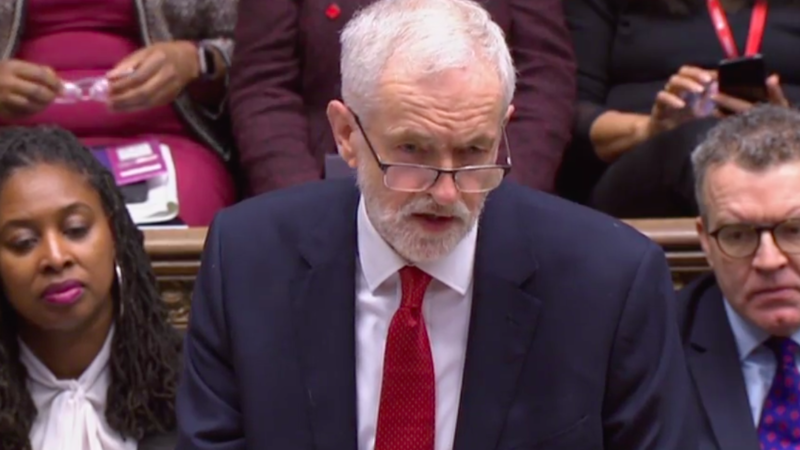
If you’re a fan of the film Groundhog Day, you’ll love PMQs. A cynical party leader finds himself reliving the same day over and over again when he visits the despatch box in the small town of Westminster to film a report about the Brexit process. Yes, as ever, Theresa May refused to answer any of the questions posed by Jeremy Corbyn, who made valiant efforts to get something, anything, out of the Prime Minister on the next steps for Brexit.
First, no deal. Corbyn noted that both the Chancellor and Business Secretary have admitted there exists a large majority in the Commons opposed to a no-deal Brexit. Since the things for which there exists a parliamentary majority are few and far between nowadays, it seemed quite sensible when he asked: “Will the Prime Minister listen to her own cabinet members and take no-deal off the table?”. Like fingernails down a blackboard, May replied that if MPs want to avoid no deal, they have to vote for a deal, i.e. hers, because no alternative is being considered, even though May’s deal has already been overwhelmingly rejected.
All this talk of avoiding no deal naturally brought the PM onto the subject of Corbyn’s preconditions for talks. Echoing the comments of Tory MPs, and some on the Labour benches too, she said Corbyn “has been willing to sit down with Hamas, Hezbollah and the IRA, without preconditions”. She went on: “Yet he won’t meet me to talk about Brexit. In this case, he’s neither present nor involved.” Ba dum tss, a wreath-laying joke to top off the useless reply.
Second, amendments to the government’s Brexit deal. Corbyn wanted to know whether the amendments that have been tabled – there’s the official Labour one, but also those laid down by Yvette Cooper, Rachel Reeves and others aimed at preventing no deal – would be effective. “Given that those amendments are now tabled, will the Prime Minister confirm that, if passed, they would rule out no-deal?” Although she repeated the view that extending Article 50 “does not solve the issue”, May wouldn’t confirm nor deny.
Third, and most importantly, a customs union. Does she rule out a new UK-EU customs union in the future relationship? No answer. The PM picked holes in the straight-forward question (“Does he mean accepting the common external tariff? … the common commercial policy? … the union customs code? … EU state aid rules?) but didn’t categorically exclude the possibility.
Using his next question to press May for an answer, she explained her belief that the deal already negotiated delivers both the benefits of a customs union and allows the UK to have its own trade policy. She then essentially accused Corbyn of stupidity, saying: “If he won’t talk about it, there’s only conclusion: he hasn’t got a clue.” And later added: “He just stands up – uses this phrases. And the honest answer is I don’t think he knows what those phrases mean and what the implications of those phrases are.”
The only facts we can take away from the May-Corbyn exchange at PMQs today are that, while disapproving of both, she has not ruled out either extending Article 50 or agreeing to a permanent customs union. Over the next few weeks, whether these red lines melt away is key to defining the outcome of the Brexit process. Could we see May risk Tory unity by conceding on a customs union and Corbyn agree to support such a deal? The Prime Minister’s personal hostility points to ‘no’, but her reluctance to rule out these options suggests it is possible.




More from LabourList
‘Labour won’t stop the far right by changing leaders — only by proving what the left can deliver’
‘Cutting Welsh university funding would be economic vandalism, not reform’
Sadiq Khan signals he will stand for a fourth term as London Mayor